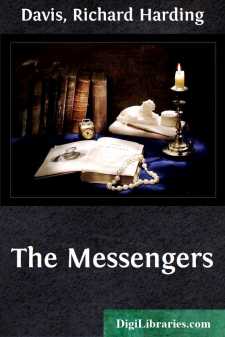Categories
- Antiques & Collectibles 13
- Architecture 36
- Art 48
- Bibles 22
- Biography & Autobiography 815
- Body, Mind & Spirit 144
- Business & Economics 28
- Children's Books 18
- Children's Fiction 14
- Computers 4
- Cooking 94
- Crafts & Hobbies 4
- Drama 346
- Education 58
- Family & Relationships 59
- Fiction 11829
- Games 19
- Gardening 17
- Health & Fitness 34
- History 1378
- House & Home 1
- Humor 147
- Juvenile Fiction 1873
- Juvenile Nonfiction 202
- Language Arts & Disciplines 89
- Law 16
- Literary Collections 686
- Literary Criticism 179
- Mathematics 13
- Medical 41
- Music 40
- Nature 179
- Non-Classifiable 1768
- Performing Arts 7
- Periodicals 1453
- Philosophy 65
- Photography 2
- Poetry 896
- Political Science 203
- Psychology 44
- Reference 154
- Religion 515
- Science 126
- Self-Help 85
- Social Science 82
- Sports & Recreation 34
- Study Aids 3
- Technology & Engineering 59
- Transportation 23
- Travel 463
- True Crime 29
Our website is made possible by displaying online advertisements to our visitors.
Please consider supporting us by disabling your ad blocker.
The Log of the Jolly Polly
Description:
Excerpt
Temptation came to me when I was in the worst possible position to resist it.
It is a way temptation has. Whenever I swear off drinking invariably I am invited to an ushers' dinner. Whenever I am rich, only the highbrow publications that pay the least, want my work. But the moment I am poverty-stricken the MANICURE GIRL'S MAGAZINE and the ROT AND SPOT WEEKLY spring at me with offers of a dollar a word. Temptation always is on the job. When I am down and out temptation always is up and at me.
When first the Farrells tempted me my vogue had departed. On my name and "past performances" I could still dispose of what I wrote, but only to magazines that were just starting. The others knew I no longer was a best-seller. All the real editors knew it. So did the theatrical managers.
My books and plays had flourished in the dark age of the historical-romantic novel. My heroes wore gauntlets and long swords. They fought for the Cardinal or the King, and each loved a high-born demoiselle who was a ward of the King or the Cardinal, and with feminine perversity, always of whichever one her young man was fighting. With people who had never read Guizot's "History of France," my books were popular, and for me made a great deal of money. This was fortunate, for my parents had left me nothing save expensive tastes. When the tastes became habits, the public left me. It turned to white-slave and crook plays, and to novels true to life; so true to life that one felt the author must at one time have been a masseur in a Turkish bath.
So, my heroines in black velvet, and my heroes with long swords were "scrapped." As one book reviewer put it, "To expect the public of to-day to read the novels of Fletcher Farrell is like asking people to give up the bunny hug and go back to the lancers."
And, to make it harder, I was only thirty years old.
It was at this depressing period in my career that I received a letter from Fairharbor, Massachusetts, signed Fletcher Farrell. The letter was written on the business paper of the Farrell Cotton Mills, and asked if I were related to the Farrells of Duncannon, of the County Wexford, who emigrated to Massachusetts in 1860. The writer added that he had a grandfather named Fletcher and suggested we might be related. From the handwriting of Fletcher Farrell and from the way he ill-treated the King's English I did not feel the ties of kinship calling me very loud. I replied briefly that my people originally came from Youghal, in County Cork, that as early as 1730 they had settled in New York, and that all my relations on the Farrell side either were still at Youghal, or dead. Mine was not an encouraging letter; nor did I mean it to be; and I was greatly surprised two days later to receive a telegram reading, "Something to your advantage to communicate; wife and self calling on you Thursday at noon. Fletcher Farrell." I was annoyed, but also interested. The words "something to your advantage" always possess a certain charm. So, when the elevator boy telephoned that Mr. and Mrs. Farrell were calling, I told him to bring them up....












